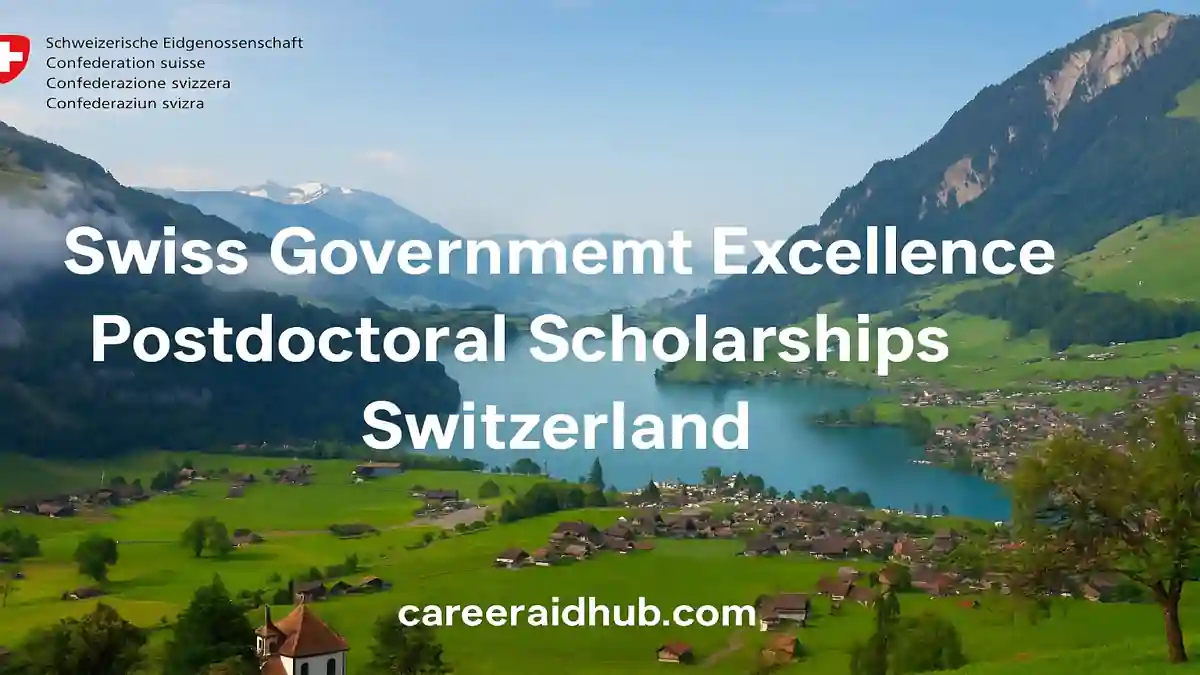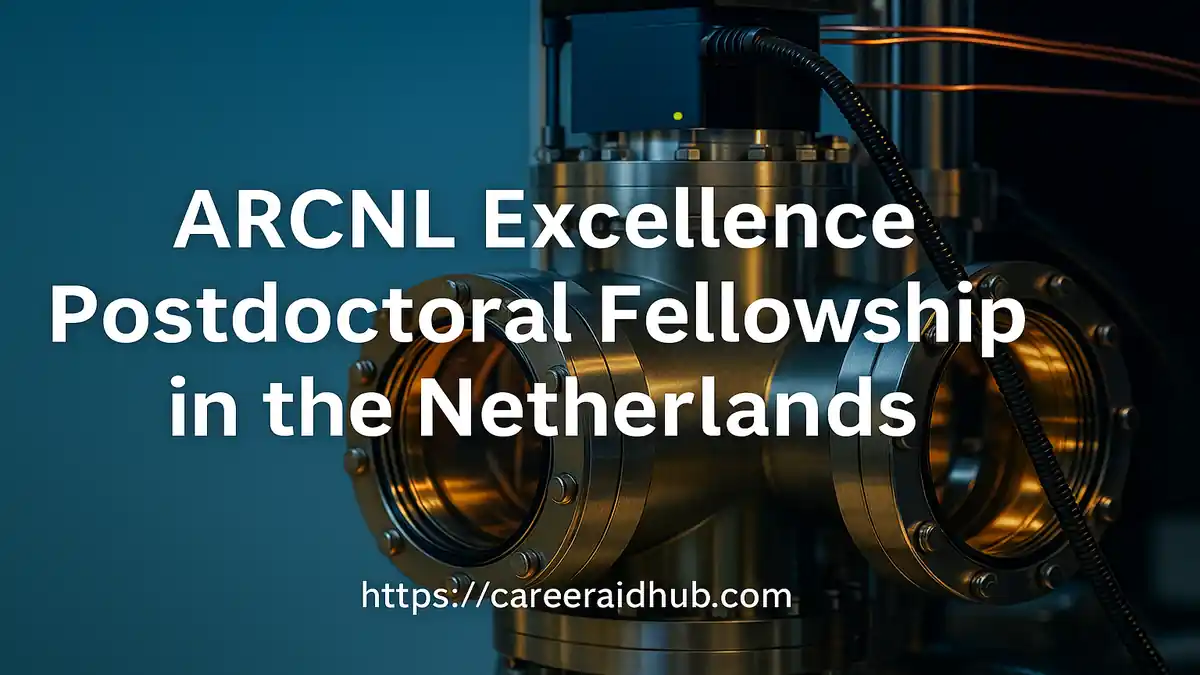European Master in Advanced Structural Analysis and Design using Composite Materials (FRP++): Fully Funded Global Fellowship for Structural Engineers 2025–2026
The advancement of sustainable construction and intelligent infrastructure relies heavily on materials that are not only strong but also efficient and adaptable. Composite materials, particularly fiber-reinforced polymers (FRPs), are rapidly becoming essential in modern structural engineering. Recognizing this trend, the European Master in Advanced Structural Analysis and Design using Composite Materials (FRP++) stands out as a premier opportunity under the Erasmus Mundus Joint Masters framework.
This distinguished master’s program is tailored for exceptional students and professionals seeking to deepen their expertise while benefiting from international academic exposure and substantial financial support. The FRP++ program provides a robust platform for individuals aiming to excel in structural analysis and design using composite materials. Open to applicants for the 2025–2026 academic year, this guide offers an in-depth overview of the program, its eligibility requirements, application procedures, and associated benefits.
Whether you are a recent engineering graduate or a working professional exploring advancement in composite structures, the FRP++ program may serve as a defining milestone in your academic and professional journey.
About the Erasmus Mundus Joint Masters framework
Program Name
European Master in Advanced Structural Analysis and Design using Composite Materials (FRP++)
Current Status
The program is currently accepting applications for the 2025–2026 academic cycle. It is confirmed to
Overview and Objectives
FRP++ is a one-year, full-time postgraduate course centered on the study and application of fiber-reinforced polymer composites in structural systems. Developed under the European Union’s Erasmus Mundus initiative, the program aims to equip participants with cross-disciplinary knowledge and practical skills required to address complex challenges in structural engineering. Graduates emerge prepared for roles in academia, research, and industry, where innovation in composite materials is key.
Duration
The full academic duration spans 12 consecutive months, commencing in October 2025 and concluding in September 2026.
Study/Work Mode
Participation in the FRP++ program is full-time and conducted entirely onsite. Students will rotate across multiple partner universities in Europe during the program.
Core Focus Areas
-
- Advanced structural analysis techniques using FRP composites
- Computational modeling and structural design using composite materials
- In-depth study of materials science and mechanical behavior
- Implementation of modern simulation and analytical tools
- Integration of sustainability and resilience principles in construction
Eligibility Criteria for Erasmus Mundus Joint Master framework
Academic Qualifications
Applicants must hold a recognized bachelor’s degree in Civil Engineering, Structural Engineering, Architecture, or a closely related discipline. The degree must be officially awarded prior to
Professional/Research Experience
While professional or research experience in composite materials or structural engineering is not mandatory, candidates with such experience may have an advantage during the selection process.
Age Limit
There is no specific age restriction for this program.
Nationality Restrictions
The program is open to applicants from all nationalities. Both EU and non-EU candidates are encouraged to apply.
Language Requirements
Demonstrated English language proficiency is essential for admission:
-
- TOEFL (Internet-Based Test): Minimum score of 80
- IELTS (Academic): Minimum overall score of 6.5
- Alternative certifications may be accepted as outlined on the official program website.
Other Requirements
Applicants must also:
-
- Demonstrate a strong academic foundation
- Submit a motivation letter detailing their interest and goals
- Show willingness and capacity to relocate for academic mobility across European institutions
Application Process for Erasmus Mundus Joint Masters framework
Step-by-Step Guide
-
- Access the application portal at msc-frp.org/applications
- If required, create an applicant account or download the application form
- Compile all required supporting documents
- Submit the completed application through the online portal
- Monitor the progress of your application using the assigned ID or confirmation email
Required Documents
-
- Curriculum Vitae (CV): Include academic achievements, relevant technical skills, research contributions, and work experience.
- Statement of Purpose (SOP): Present your academic background, motivation, career objectives, and why this program aligns with your aspirations.
- Academic Transcripts: Submit complete official transcripts. Provide certified English translations if the originals are in a different language.
- Letters of Recommendation: Two letters from academic advisors or professional supervisors who can attest to your qualifications.
- Proof of English Proficiency: Submit valid scores for IELTS, TOEFL, or an equivalent certification.
- Identification: A scanned copy of a valid passport or national ID.
- Additional Forms: Where applicable, include scholarship request forms, financial declarations, or consent forms as outlined by the program.
Fields of Study / Research Areas Supported
The FRP++ program supports a wide array of disciplines related to structural engineering and materials science, including:
-
- Structural Engineering
- Composite Materials
- Computational Mechanics
- Civil Infrastructure Development
- Finite Element Analysis and Modeling
Proposals that integrate concepts across engineering domains, particularly those combining mechanics with material innovation, are strongly encouraged.
Financial Benefits
Erasmus Mundus Scholarship Coverage
Successful applicants receiving the Erasmus Mundus Scholarship can expect comprehensive financial support:
-
- Tuition Fees: Full coverage of all academic tuition
- Monthly Stipend: Approximately EUR 1,400 per month for daily living expenses
- Travel Allowance: Funding providedfor international travel to host institutions
- Installation Grant: One-time financial aid to facilitate initial settlement
- Health Insurance: Full coverage for health and accident insurance throughout the duration of the program
- Mobility Support: All intra-European travel required by the program is financially supported
Selection Process
Evaluation Stages
-
- Initial Screening: Assessment of eligibility and verification of submitted documents
- Shortlisting: Evaluation of application materials including SOP, CV, and recommendations
- Interview: Optional stage for further assessment of shortlisted candidates
- Final Selection: Results communicated via email; formal admission letters issued thereafter
Assessment Criteria
-
- Academic performance and qualifications
- Relevance of prior education and experiences
- Clarity of motivation and alignment with program objectives
- Strength and content of recommendation letters
- English language proficiency
Estimated Timeline
-
- Application Review: February to March 2025
- Shortlisting Decisions: May 2025
- Interviews (if applicable): June 24–26, 2025
- Final Result Announcement: June 28, 2025
- Program Commencement: October 1, 2025
Important Application Deadlines
|
Event |
Date |
|
1st Call Application Open |
Currently Open |
|
1st Call Application Deadline |
January 31, 2025 |
|
2nd and 3rd Call |
To Be Determined |
|
Interview Dates (if applicable) |
June 24–26, 2025 |
|
Final Results |
June 28, 2025 |
|
Program Start |
October 1, 2025 |
Tips to Strengthen Your Application
Crafting an Effective Statement of Purpose (SOP)
Ensure that your SOP clearly reflects your academic background, motivations, and specific goals. Explain how the FRP++ program aligns with your career objectives and what you hope to achieve.
Developing a Strong CV
Highlight academic results, research work, internships, and any published materials. Prioritize relevance to structural engineering or composite materials.
Selecting Recommenders Wisely
Choose referees who are familiar with your academic or professional competencies and who can provide detailed, supportive references.
Use of Formatting Tools
To enhance presentation, consider using platforms like Canva for visually appealing CV designs, and proofreading tools such as Grammarly to ensure clarity and accuracy in written statements.
Contact Information
For further inquiries or clarification, applicants may reach out through the following channels:
- Official Website: https://msc-frp.org
- Email: [email protected]
- Social Media Profiles:
Conclusion
The European Master in Advanced Structural Analysis and Design using Composite Materials (FRP++) is among the most prestigious academic programs in its field. It offers a rare combination of academic excellence, global mobility, and full financial support. With its comprehensive curriculum and collaborative network of esteemed universities, FRP++ provides the tools and opportunities necessary for future engineers and researchers to thrive in competitive global markets.
Applicants are encouraged to prepare thoroughly and apply within the first call deadline to enhance their chances of receiving the Erasmus Mundus scholarship.
Quick Summary Table
|
Feature |
Details |
|
Program Name |
European Master in Advanced Structural Analysis and Design using Composite Materials (FRP++) |
|
Host Country / Region |
Portugal, Spain, Italy, France |
|
Funded By |
European Union (Erasmus Mundus Joint Masters) |
|
Duration |
12 months (October 2025 – September 2026) |
|
Study Mode |
Full-time, Onsite |
|
Eligibility |
Bachelor’s in Engineering/Architecture or related field |
|
Financial Support |
Full tuition, monthly stipend, travel support, health insurance |
|
Fields of Study |
Structural Engineering, Materials Science, Composite Structures |
|
Application Deadline |
First Call: January 31, 2025 |
|
Official Website |
See below |
Reference: FRP++ Program Application Portal
FAQs
The FRP++ is a one-year joint master’s program focused on structural engineering using fiber-reinforced polymer composites across top European universities.
Yes, the program offers full tuition coverage, a monthly stipend, travel support, and health insurance under the Erasmus Mundus scholarship.
Graduates with a bachelor’s degree in engineering, architecture, or a related field can apply from any country, including non-EU nations.
Applicants must submit a CV, transcripts, motivation letter, English test scores, ID proof, and at least two recommendation letters.
The first application call closes on January 31. Additional calls may follow, but most scholarships are awarded during the first round.
Yes, English proficiency is mandatory. You need a minimum IELTS score of 6.5 or a TOEFL iBT score of 80.
The program is delivered by institutions in Portugal, Spain, Italy, and France through academic mobility during the study period.
The Erasmus Mundus scholarship provides approximately EUR 1,400 per month to cover living expenses during the program.
Yes, early-career professionals with relevant academic backgrounds are eligible and encouraged to apply.
Graduates often pursue roles in structural engineering, research, or doctoral programs focused on composite materials and advanced design.
Premium Mentorship for a Stronger Application
- Premium Mentorship: personalised 1:1 guidance for this and similar opportunities
- In-depth review of your CV, academic profile, and key statements
- Aligned with international selection criteria so your profile matches what panels expect
- Stronger, more compelling narrative for highly competitive calls
- Step-by-step support from opportunity mapping to final submission (fee-based)










